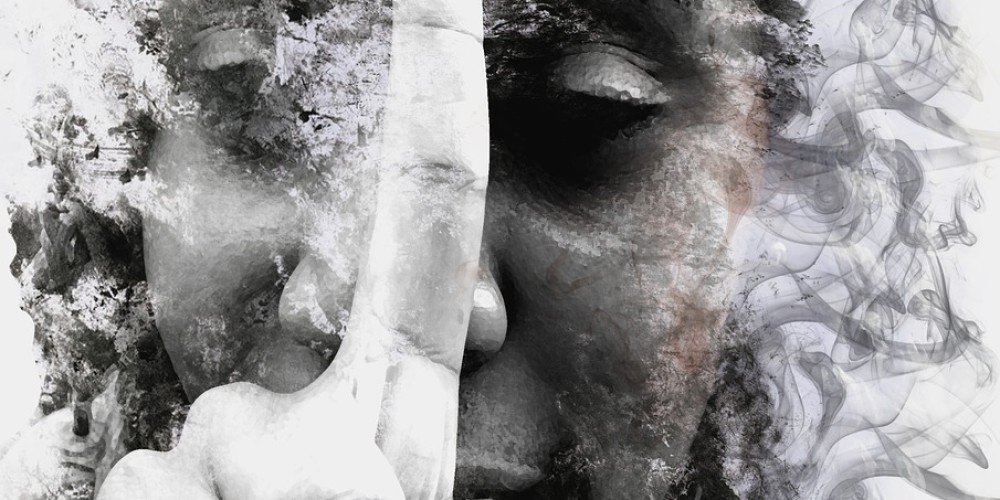What comes first – your belief, or the facts?

Another disputed election. That’s a hat-trick now since 2007.
At the time of writing this, I do not know who won the various poll races held in Kenya this week, because the official results are not out yet. But the airwaves and the cybersphere are full of competing narratives, conspiracy theories, accusations and allegations. The roads of Nairobi were empty for days; the heated jams were on social media.
I have heard all the arguments and imputations. But I have no idea what really happened. None at all. How can I, without evidence, hard facts and proof? I am listening, and trying to make sense of it all. But at the end of the day I will have to leave it to genuine experts, and hope I can believe in their independence.
What worries me, however, is what I observe in the pronouncements of acquaintances and strangers all over the land. What is astonishing is how absolutely certain people are of their positions. They seem to have no doubt at all in their minds. Whatever they think is the gospel truth. And the opposing side are obviously liars or fools or worse.
Have you ever heard of confirmation bias? This is what happens when you so badly want something you believe in to be the truth, that you look for evidence to confirm it, rather than the truth itself. You embrace all the evidence that confirms your belief; and you filter out or deny everything that contradicts it.
And so one side in this election is utterly convinced it won fair and square. Any suggestions that it might not have must be attacked and ridiculed. There is no room for doubt. The other side is utterly convinced that it was cheated yet again. They believe it, therefore it is true.
I watch people lay into one another with self-righteous anger and visceral indignation. We believe this, our leaders have said it, so it must be true. Instead of calming down and studying the actual evidence for a change, we would rather whip ourselves up into a frenzy.
It affects even the most educated minds, this confirmation bias. You can watch people with PhDs duelling emotionally on our TV sets or opinion pages, refusing to countenance any argument from the opposing side. And before and after every election I watch our business leaders line up to sell the ‘peace’ message because a quick and peaceful election is best for business, so we must have a quick and peaceful election always. Many of us are equally protective of our livelihoods, and blind to injustice.
Dr Evangeline Chao, a computer science expert, ran a very interesting thread on Twitter. She observed: if you are critical of any person or party in these parts, or ask any questions about the integrity of any part of the election, you are immediately labelled “anti”. In other words, people accuse you of having the opposite confirmation bias to theirs! This stuff has consequences, she pointed out: it gives us a binary either-or mindset, with no room for nuance; it makes us adore or hate people unquestioningly; and it makes us accepting of mediocrity.
And Joyce Nyairo, another thoughtful scholar, tired of the incessant flow of self-confirming invective on Twitter, wrote: “Some of us are eager to understand systems; to strengthen institutions. Our intellectual mandate goes beyond cheerleading for politicians.”
Sadly, there are not enough such people around. The vast majority are reduced to shouting across the divide incessantly, entertaining neither a doubt nor a fact. Their biases are confirmed every day, because contradictory evidence is simply blocked out. If you shout louder than your opponents in these parts, you win. Or you think you do.
I suffer from confirmation bias too, of course I do. None of us is a purely objective, coldly clinical observer. We are all clouded by emotion and desire, by something we badly want to be true. The trick is to become aware of the bias, and to catch yourself confirming it from time to time. Then, you will be able to stop yourself, hopefully, from tilting blindly at windmills.
We need to be able to conduct our elections in a manner that is beyond reproach. We need to be able to believe in our institutions. But we will never be able to do this until we overcome the widespread infestation of confirmation bias. A fraudulent election is a very serious business. So is crying wolf. We need enough calm, open minds in our midst to overcome these challenging times, whether we like the final result or not.
(Sunday Nation, 13 August 2017)

Buy Sunny Bindra's new book
The X in CX
here »
Popular Posts
- How things fall apartFebruary 8, 2026
- Why the third generation might ruin everythingFebruary 15, 2026
- Pretty isn’t the productFebruary 1, 2026
- You don’t need people skillsFebruary 22, 2026
- Snakes and Ladders, AKA your lifeJanuary 25, 2026















